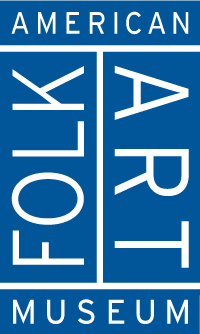Record Details
Portrait of a Woman (Possibly Member of the Van Vechten Family)
This unsigned pendant portrait is characteristic of Sheldon Peck's early style, reminiscent of works he created in the 1820s. The palette is dark and the backgrounds are plain. The brushwork in Mrs. Van Vechten's portrait is more painterly than that of Mr. Van Vechten. A variation of the Peck trademark, the "rabbit's paw" motif of two splayed strokes and a short vertical between them, appears on a decorative band on Mrs. Van Vechten's shawl. The modeled face shows strength and dignity, but the eyes are not as intense, nor the expression as austere, as those in Peck's later works.
Born in Cornwall, Vermont, Peck was the ninth of eleven children born to Jacob Peck, a farmer and blacksmith, and his wife, Elizabeth. His ancestors were settlers of New Haven, Connecticut. There is no record that he ever studied art, but there is evidence that he had access to instruction books in the library of the Cornwall Young Gentleman's Society, founded in 1804. Peck painted in Cornwall from 1820 to 1827 and settled in Onandaga County, New York, in 1828. He married Harriet Corey of Bridgeport, Vermont, and they had twelve children. In 1836 he abruptly moved his family to Lombard, Illinois, where he became known as an artist, farmer, deacon, school founder, and abolitionist.
The subject, if she is indeed from the Van Vechten family, may be Catherine C. (?–1852). Catherine's father was Captain Arthur C. Roorbach. The Van Vechten family was from Greene County, New York, but may have traveled to Cornwall or the northwestern part of New York State nearer to Canandaigua County, where Peck lived from 1828 until 1836.
Lee Kogan, "Portrait of a Woman (Possibly Member of the Van Vechten Family)," in Stacy C. Hollander, American Anthem: Masterworks from the American Folk Art Museum (New York: Harry N. Abrams in association with American Folk Art Museum, 2001), 316.
Object information is a work in progress and may be updated with new research. Records are reviewed and revised, and the American Folk Art Museum welcomes additional information.
To help improve this record, please email photoservices@folkartmuseum.org














